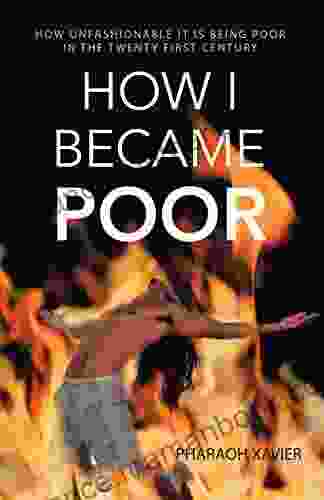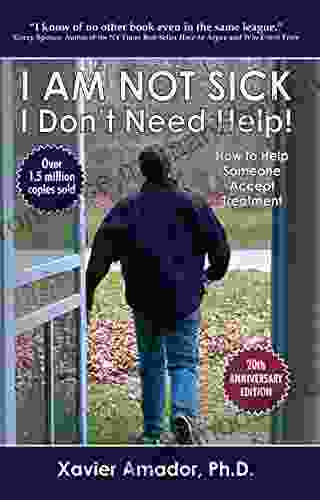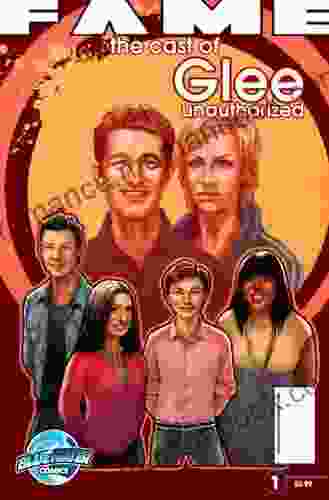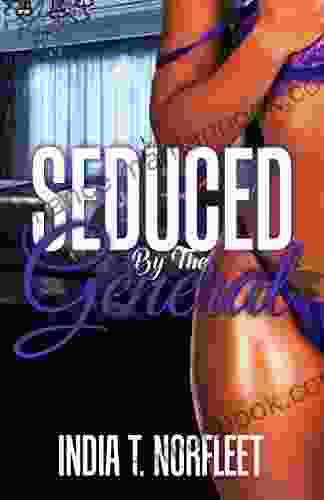The Poverty Paradox: How Unfashionable It Is to Be Poor in the 21st Century

In the 21st century, an era marked by unprecedented technological advancements, global interconnectedness, and economic growth, it is paradoxical that poverty persists as a pervasive and insidious social ill. While the global poverty rate has declined in recent decades, the gap between the rich and the poor has widened, leading to increased social inequality and creating a social hierarchy where poverty is increasingly marginalized and stigmatized.
This article delves into the complex reasons behind the stigmatization of poverty in the 21st century, explores its devastating consequences, and underscores the urgent need for societal change to address this persistent global issue.
5 out of 5
| Language | : | English |
| File size | : | 189 KB |
| Text-to-Speech | : | Enabled |
| Screen Reader | : | Supported |
| Enhanced typesetting | : | Enabled |
| Word Wise | : | Enabled |
| Print length | : | 15 pages |
Causes of Poverty Stigma
The stigmatization of poverty is a complex phenomenon influenced by a myriad of factors, including:
- Ignorance and Misconceptions: Poverty is often misperceived as a result of laziness, lack of motivation, or moral failings, leading to negative attitudes and judgments towards those living in poverty.
- Individualistic Culture: The dominance of individualistic values in modern society has fostered a belief that success is solely determined by personal effort, downplaying the role of structural factors and systemic inequalities that contribute to poverty.
- Media Portrayal: Media representations often portray people in poverty as helpless victims or as criminals, reinforcing stereotypes and perpetuating negative perceptions.
- Political Discourse: Political rhetoric frequently frames poverty as a personal responsibility, rather than acknowledging the complex societal factors that contribute to it.
Consequences of Poverty Stigma
The stigma associated with poverty has far-reaching and devastating consequences for those affected by it:
- Social Exclusion: Poverty stigma isolates individuals from society, leading to social isolation, diminished self-esteem, and reduced opportunities for social and economic advancement.
- Health Inequities: The stress, discrimination, and lack of access to healthcare faced by people in poverty contribute to increased health risks and disparities.
- Educational Barriers: Poverty stigma can create educational barriers for children from low-income backgrounds, affecting their academic performance and future opportunities.
- Economic Marginalization: Poverty stigma can make it harder for individuals to find employment, secure housing, or access financial services, perpetuating a cycle of poverty.
Breaking the Stigma
Addressing the stigma associated with poverty requires a multifaceted approach that involves:
- Educating and Awareness-Raising: Promoting accurate information about poverty, its causes, and consequences can challenge misconceptions and foster empathy.
- Challenging Stereotypes: Countering negative stereotypes through media, education, and public discourse is crucial to changing attitudes towards poverty.
- Addressing Systemic Issues: Implementing policies that tackle the root causes of poverty, such as inequality, lack of access to education and healthcare, and discrimination, is essential for breaking the cycle of poverty.
- Promoting Social Inclusion: Creating inclusive communities that welcome and support people from all socioeconomic backgrounds can help reduce social isolation and foster a sense of belonging.
The stigmatization of poverty is a glaring paradox in the 21st century, a time of unparalleled prosperity and technological advancement. Negative attitudes and misconceptions towards poverty create a social hierarchy that excludes and marginalizes those living in poverty. The consequences of poverty stigma are far-reaching and devastating, affecting health, education, economic opportunities, and overall well-being.
Breaking the poverty stigma requires a concerted effort to educate, challenge stereotypes, address systemic issues, and promote social inclusion. By fostering empathy, understanding, and societal change, we can create a more just and equitable world where poverty is no longer a barrier to human dignity and potential.
Call to Action
The fight against poverty stigma is a collective responsibility. Here's what you can do to make a difference:
- Educate yourself about poverty and its causes.
- Challenge negative stereotypes and speak out against discrimination.
- Support organizations working to reduce poverty and promote social justice.
- Advocate for policies that address the root causes of poverty.
- Treat people from all socioeconomic backgrounds with respect and compassion.
5 out of 5
| Language | : | English |
| File size | : | 189 KB |
| Text-to-Speech | : | Enabled |
| Screen Reader | : | Supported |
| Enhanced typesetting | : | Enabled |
| Word Wise | : | Enabled |
| Print length | : | 15 pages |
Do you want to contribute by writing guest posts on this blog?
Please contact us and send us a resume of previous articles that you have written.
 Top Book
Top Book Novel
Novel Fiction
Fiction Nonfiction
Nonfiction Literature
Literature Paperback
Paperback Hardcover
Hardcover E-book
E-book Audiobook
Audiobook Bestseller
Bestseller Classic
Classic Mystery
Mystery Thriller
Thriller Romance
Romance Fantasy
Fantasy Science Fiction
Science Fiction Biography
Biography Memoir
Memoir Autobiography
Autobiography Poetry
Poetry Drama
Drama Historical Fiction
Historical Fiction Self-help
Self-help Young Adult
Young Adult Childrens Books
Childrens Books Graphic Novel
Graphic Novel Anthology
Anthology Series
Series Encyclopedia
Encyclopedia Reference
Reference Guidebook
Guidebook Textbook
Textbook Workbook
Workbook Journal
Journal Diary
Diary Manuscript
Manuscript Folio
Folio Pulp Fiction
Pulp Fiction Short Stories
Short Stories Fairy Tales
Fairy Tales Fables
Fables Mythology
Mythology Philosophy
Philosophy Religion
Religion Spirituality
Spirituality Essays
Essays Critique
Critique Commentary
Commentary Glossary
Glossary Bibliography
Bibliography Index
Index Table of Contents
Table of Contents Preface
Preface Introduction
Introduction Foreword
Foreword Afterword
Afterword Appendices
Appendices Annotations
Annotations Footnotes
Footnotes Epilogue
Epilogue Prologue
Prologue Dan Brown
Dan Brown Forrest Cole
Forrest Cole J Leigh Bralick
J Leigh Bralick Dennis Machino
Dennis Machino Gayle Berry
Gayle Berry Mary Robinette Kowal
Mary Robinette Kowal Jean De La Fontaine
Jean De La Fontaine Toyin Sebastien Ajimati
Toyin Sebastien Ajimati Christi Phillips
Christi Phillips Terry Sullivan
Terry Sullivan Tilly Wallace
Tilly Wallace Emma Haslett
Emma Haslett Rebecca Lessler
Rebecca Lessler W Fred Van Raaij
W Fred Van Raaij Mike Senior
Mike Senior Margaret Atwood
Margaret Atwood Jessica Roux
Jessica Roux Zach Selch
Zach Selch Hugh Ryan
Hugh Ryan Anne Applebaum
Anne Applebaum
Light bulbAdvertise smarter! Our strategic ad space ensures maximum exposure. Reserve your spot today!

 Theodore MitchellPure Destiny: Sweet Indian Romance Complete Boxset - A Literary Gem for...
Theodore MitchellPure Destiny: Sweet Indian Romance Complete Boxset - A Literary Gem for...
 Ronald SimmonsKnock at the Door: A Journey into the Unsettling Encounters with Uninvited...
Ronald SimmonsKnock at the Door: A Journey into the Unsettling Encounters with Uninvited... Mario SimmonsFollow ·10.3k
Mario SimmonsFollow ·10.3k Pablo NerudaFollow ·14.5k
Pablo NerudaFollow ·14.5k Johnny TurnerFollow ·17.8k
Johnny TurnerFollow ·17.8k Frank MitchellFollow ·12.1k
Frank MitchellFollow ·12.1k Carlos FuentesFollow ·18.3k
Carlos FuentesFollow ·18.3k Edgar Allan PoeFollow ·8.5k
Edgar Allan PoeFollow ·8.5k Juan ButlerFollow ·13.9k
Juan ButlerFollow ·13.9k Michael ChabonFollow ·3.8k
Michael ChabonFollow ·3.8k
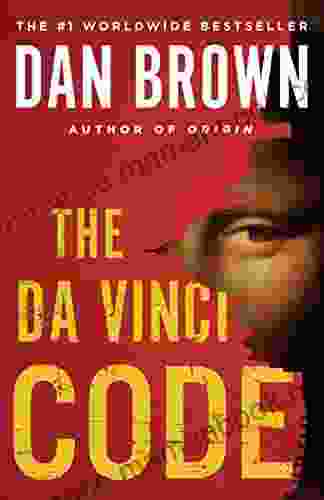
 Jared Nelson
Jared NelsonThe Da Vinci Code: A Literary Odyssey into the World of...
A captivating image of The Da Vinci Code...

 Harvey Bell
Harvey BellJohn Pearce: An Action-Packed Maritime Adventure
Join John...

 Ken Follett
Ken FollettSky Dragons: Unveiling the Majestic Creatures from the...
In the ethereal world of Anne McCaffrey's...

 Blake Bell
Blake BellEasy And Delicious Baking Recipes You Can Effortlessly...
Baking can be a great way to relax and...

 Maurice Parker
Maurice ParkerUnveiling the Profound Insights and Lyrical Beauty of...
In the realm of contemporary poetry, "Growl...
5 out of 5
| Language | : | English |
| File size | : | 189 KB |
| Text-to-Speech | : | Enabled |
| Screen Reader | : | Supported |
| Enhanced typesetting | : | Enabled |
| Word Wise | : | Enabled |
| Print length | : | 15 pages |


